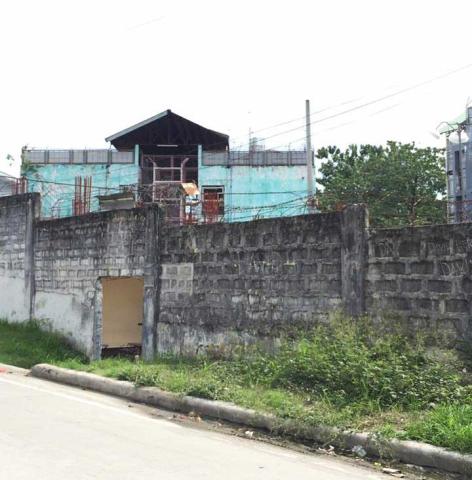Those in a maximum security prison in the Philippines sing: “You can arrest my body, but you will not arrest my spirit…”

Last summer, I spent three memorable hours in prison. I had not been arrested.
That July morning, colleagues from one of our partners, the KARAPATAN alliance in the Philippines, picked me up at my hotel for a two-hour drive out of Quezon city. With our Mission and Service partners the United Church of Christ in the Philippines and the National Council of Churches in the Philippines, the United Church has long been engaged in human rights advocacy in the country and in mitigating the effects of mining, especially on the Indigenous peoples of the mineral-rich Mindanao region.
The driver stopped to pick up a mother with her son, daughter-in-law, and two grandchildren, who were also heading in the same direction. When we reached our destination, rigorous security checks required each of us to present two government-issued identity documents, and we were screened for metals. After an hour, we were admitted to a faded green building with high walls—where we went through the same process all over again. Another hour later we were allowed inside.
To my shock, the daughter-in-law of the woman we gave a ride to was not allowed to enter even after being cleared through the first security entrance. It broke my heart because the young woman and her 8- and 10-year-old children had come to visit her husband, their father, who is one of the political prisoners. The name of the political prisoner is Eddie Cruz and there has been an international campaign for his and other prisoners’ release.
When the prisoners heard that the family of Eddie Cruz were not allowed access, two of their leaders went to plead with the security guards. After a 40-minute negotiation, they allowed the 10-year-old boy to come in, but not his sister and his mother. The young woman could not see her husband; the daughter could not see her dad. He had been away from home for five years, and they had managed to see him only three times.
As an international visitor from a church organization, I was allowed to go right up to the fourth floor, which was reserved for political prisoners. I went to visit 15 of the 400 political prisoners being held by the government of the Philippines. Their only crime: political dissent. In order to justify their long detentions without trial, they have all been charged with non-bailable offences. The charges sounded like a litany as each prisoner took turns to introduce themselves: illegal possession of firearms and explosives, kidnapping, murder, kidnapping with intent to murder, arson with rebellion and incitement.
They are considered high-risk criminals and held in a facility with illegal drug lords, actual terrorists from Abu Sayyaf. After protesting that they should not be lumped together with actual high-risk prisoners, the political prisoners were given their own cell. I listened to their stories. Almost all of them were first kidnapped by the police and kept blindfolded, beaten, and driven far away from their home towns. They said as an ice breaker they had a special song to present accompanied by guitar. They sung for me in Tagalog. “You can arrest and confine my body, but you will not arrest my spirit and ideas of justice. Freedom and justice will one day reign.”
These political prisoners range from opposition grassroots organizers, peasant farmers, human rights activists, and ordinary rural farmers who were members of peasants’ land rights movement. Though the experience was draining, toward the end of my visit their positive energy inspired me to continue my contributions toward peace and the struggle for justice in the world.
While in prison many political prisoners spend their time doing handicrafts, including beadwork and painting. The prison is congested. Most of the prisoners face health challenges such as managing diabetes and high blood pressure. One woman had died recently of hypertension. Only one doctor is available for about seven thousand detainees.
Prisoners are not brought to court because of being termed as high-risk detainees. There is a very slow pace of justice; many detainees spend years before they are charged and before they would appear before a judge. Some has been detained so far away from their homes that it is very difficult for their family members to visit them.
I was presented with the gifts of a beaded rose and pen holder. I was told a pen was one of the most important items in prison, as prisoners use one to write down their thoughts. They found that exercise cathartic; it helped release their frustration and anger.
Through the Mission & Service of The United Church of Canada, our partners are providing legal aid and support to the families of these prisoners. I offered to pray with them before leaving, and oh, what joy at the suggestion of a prayer. You should have heard a strong and resounding amen at the end. They sang again, our bodies may be broken but our spirits will not be broken. Their message to the world: pray for us and join the campaign for our release as political prisoners.
—Rev. Dr. Japhet Ndhlovu is The United Church of Canada’s Program Coordinator for Southern Africa and South East Asia.